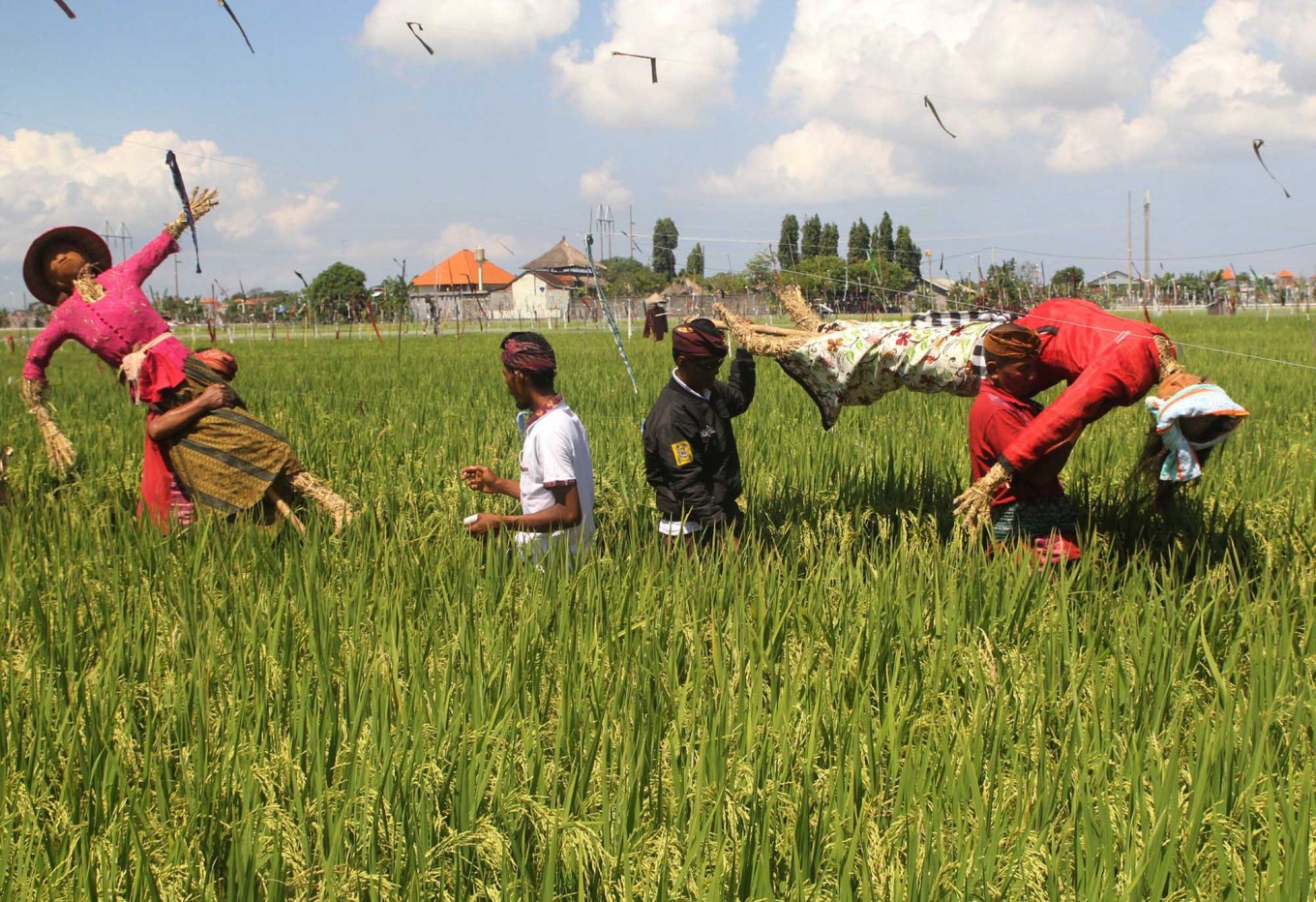News
Govt eases food procurement, oversight concerns linger
Tenggara Strategics September 30, 2025 To ensure the country’s long-term food security, as well as its agricultural growth, will require the wise stewardship of Indonesia’s natural resources and biodiversity: its forests, woodlands, grasslands, wetlands, and rivers all have a critical role to play. (JP/Zul Trio Anggono)
To ensure the country’s long-term food security, as well as its agricultural growth, will require the wise stewardship of Indonesia’s natural resources and biodiversity: its forests, woodlands, grasslands, wetlands, and rivers all have a critical role to play. (JP/Zul Trio Anggono)
The government is accelerating funding mechanisms to secure Indonesia’s food, energy and water needs, but the latest regulatory changes raise concerns about oversight and potential misuse. On Sept. 22, the Government Procurement Agency (LKPP) issued Regulation No. 3/2025 on Guidelines for Procurement of Goods from Completed Works in the Development of Self-Sufficiency Areas. Under the new regulation, vendors are no longer required to undergo electronic bidding or conduct feasibility studies, a change that enables faster disbursement of funds but increases the risk of inefficiency and misuse.
The urgency of faster funding is evident in the numbers. As of Sept. 8, only Rp 73.6 trillion (US$4.39 billion), or 50.9 percent of the 2025 allocation, had been realized, a low figure given that peak spending is expected during the second quarter planting season. To close the gap, Coordinating Minister for Food Affairs Zulkifli Hasan has set up an acceleration team tasked with unblocking bottlenecks and self-sufficiency projects, including food estates, do not stall further.
Yet, the government’s heavier reliance on state-led financing reflects a deeper transition. Initially launched in 2020 as an investment-driven project under former president Joko “Jokowi” Widodo, the food estate program was designed to bring in private capital, with the state acting as regulator and facilitator. But as private sector appetite dwindled, the burden shifted almost entirely to the state budget. Under President Prabowo Subianto, the food estate has been rebranded into his flagship free nutritious meal agenda, tied to broader energy and water resilience goals. The new LKPP regulation underscores this pivot, but by removing feasibility checks, it also heightens risks of cost overruns and fund leakage.
The strain from this transition is already visible. In August 2025, Agrinas CEO Joao Angelo De Sousa Mota resigned, citing frustration with Danantara’s failure to prioritize and finance food estate projects. His departure not only cast a spotlight on Danantara but also underscored the growing dependence on state coffers, raising questions over whether the program can truly sustain itself without private sector leadership.
These governance strains have been compounded by a string of controversies. The decision to place the food state program under the Defense Ministry, then led by Prabowo Subianto, now the president, drew criticism, as many had assumed it would be overseen by the Agriculture Ministry. In 2021, environmental groups raised alarms after peatlands in Central Kalimantan earmarked for conservation were cleared, heightening the risk of forest fires. By 2022, protests broke out in Humbang Hasundutan, North Sumatra, where farmers said their land had been converted into potato and garlic estates without their consent. These disputes have carried over into Prabowo’s presidency, culminating in 2025 with a constitutional court lawsuit filed by Merauke residents, who accused the government of razing forests without the proper permits.
Prior to the lawsuit, Merauke had just been designated as the only food estate included in the government’s list of strategic national projects (PSN). Yet despite the elevated status, progress on the ground has been minimal. Local accounts suggest that the government has achieved little beyond partial forest clearing and some unfinished infrastructure. During the most recent harvest season, residents received only subsidized rice, as the estate itself had yet to yield any crops.
As a PSN, Merauke was supposed to be supported by major infrastructure upgrades, including an irrigation system, a port, an airport, and a 135.5-kilometer Wanam–Muting roadway. However, locals report that only around 50 km of the roadway have been completed to date, with the rest still far from realization.
This lack of progress has been compounded by the escalating legal battle. Merauke communities have brought the project to the Constitutional Court (MK), arguing that the government began razing forests without securing the necessary permits.
For many, the clash with locals comes as no surprise. Merauke has long been viewed by policymakers as a prime site for mass agribusiness, given its fertile climate, flat terrain and strong access to seaports. But for just as long, local communities have resisted such efforts. A notable precedent dates back to the Susilo Bambang Yudhoyono (SBY) administration, when the Merauke Integrated Food and Energy Estate (MIFEE) was launched in 2010, only to face vehement opposition from residents and civil society groups. Against this backdrop, the inclusion of Merauke as a PSN in today’s program has been criticized by some observers as less a development priority than a smokescreen to legitimize what, in practice, amounts to a state-backed takeover of the region.
The combination of issues in implementing the self-efficiency programs underscores why the government has moved to ease procurement requirements, but this very shortcut intended to overcome gridlock risks repeating the same governance failures that have plagued the food estate from the start.
What we've heard
According to some government sources, the latest regulation from the National Procurement Agency (LKPP) to fund the food estate program was initially rejected by former finance minister Sri Mulyani Indrawati, who allegedly said it would burden the government’s fiscal position in the long term.

